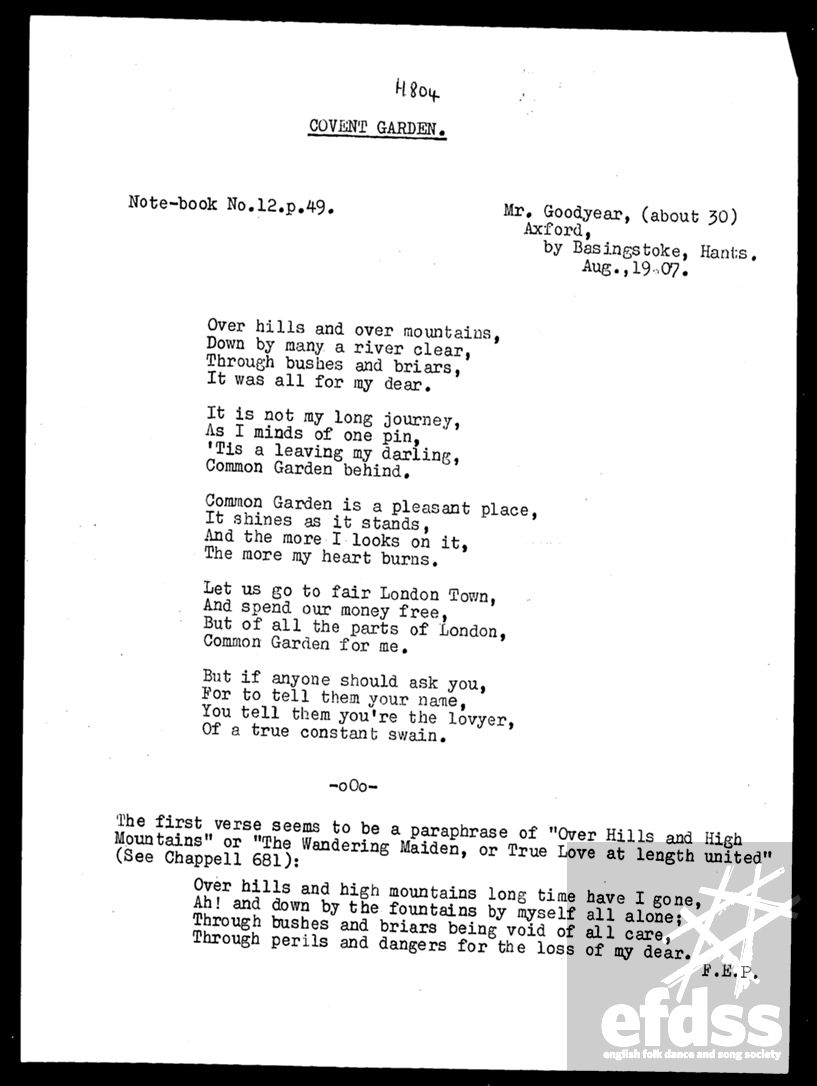The first song in the Penguin Book of English Folk Songs is from Lower Beeding, Sussex. The next is from Moonee Ponds, Victoria, in Australia. The singer, the octagenarian Mrs. Ann Aston, had been living in Australia since 1855, but had been born in Coleford, Gloucestershire. She had learned the song from an uncle, who also hailed from Gloucestershire.
The notes to the book say “This song was sent to W. P. Merrick from Australia” – by whom, I’m afraid I know not – and “The text has been amplified from versions sung to H.E.D. Hammond in 1906 by two Dorset women, Mrs. Hann of Stoke Abbot and Mrs. Russell of Upwey. A version from Lew Down, Devon, appears in Songs of the West (Baring-Gould and others, 1905) under the title of A Maiden Sat A-Weeping.” Malcolm Douglas’ expanded notes to the reprint (Classic English Folk Songs) point out that the final verse appears to come from the Baring-Gould version.
In the folk revival, the most widely sung version is probably that based on the recording by Pentangle (“Once I had a sweetheart” from Cruel Sister), which seems to derive from a version collected by Sharp in Somerset. But I really like John Kirkpatrick’s arrangement of Baring-Gould’s “A Maiden Sat A-Weeping” on the Brass Monkey album Going and Staying. Steeleye Span were so taken with the “Sails of Silver” line that they based a whole song around it, the title track of their 1980 LP.
As for my own arrangement, I can no longer recall if the D minor – Eb major chord progression was the result of musical inspiration, or just a happy accident. Probably the latter, to be honest.
As Sylvie was walking
Andy Turner: vocal, C/G anglo-concertina



